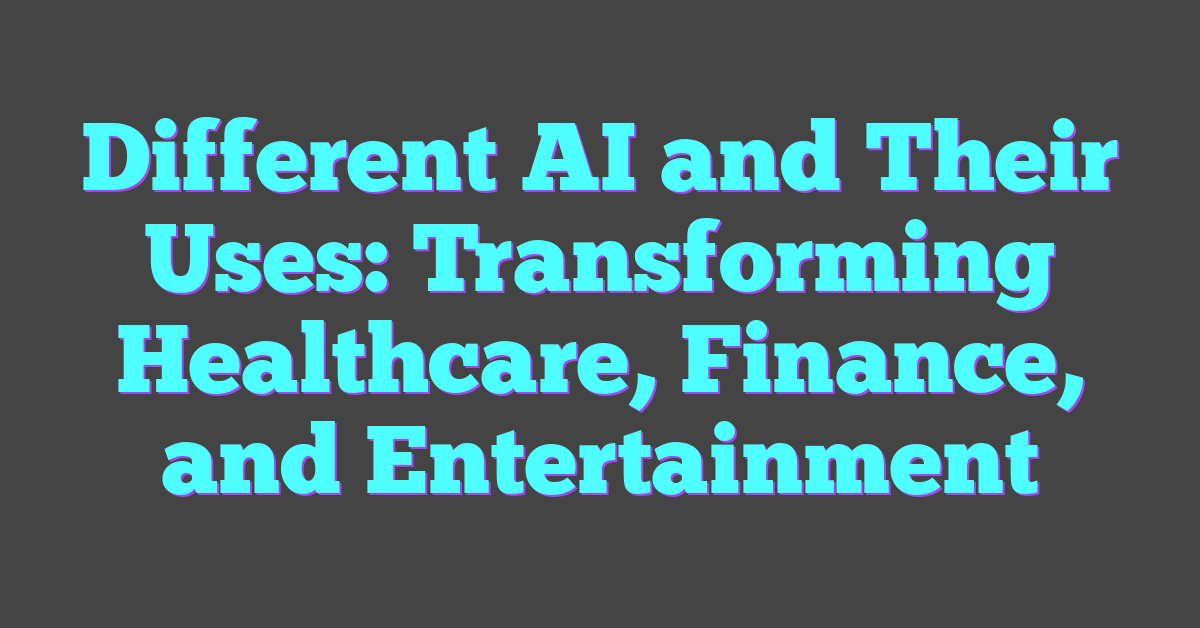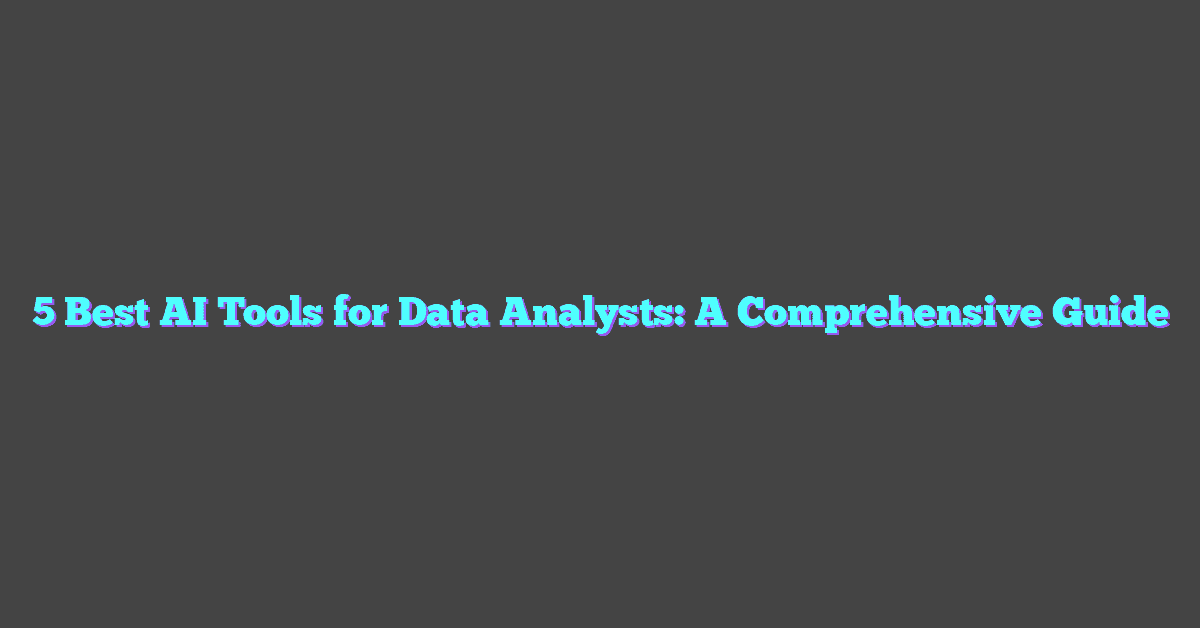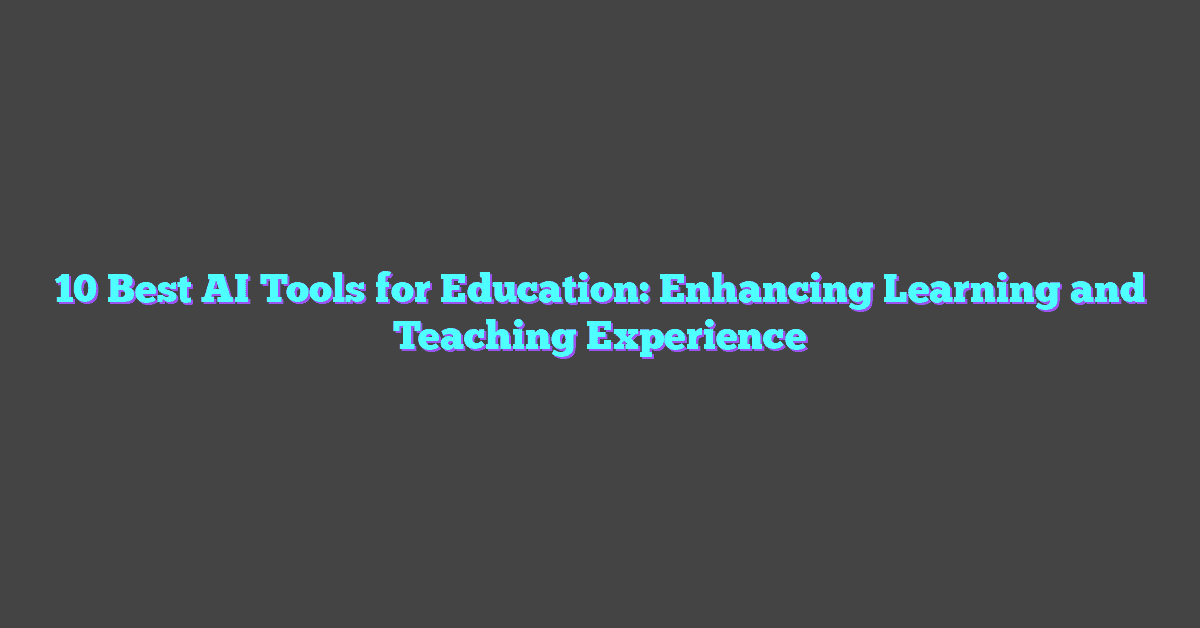Artificial intelligence is no longer a concept confined to science fiction. From virtual assistants like Siri and Alexa to recommendation algorithms on Netflix and Amazon, AI has seamlessly integrated into daily life, making tasks easier and more efficient. But not all AI is created equal; each type serves unique purposes and industries.
Whether it’s enhancing customer service with chatbots or revolutionizing healthcare with predictive analytics, AI’s applications are vast and varied. This article delves into the different types of AI and explores how they’re transforming various sectors, offering a glimpse into a future where intelligent machines play a pivotal role.
Types of AI: Definitions and Examples
Artificial intelligence (AI) comes in various forms, each with distinct capabilities and applications. Understanding the different types of AI helps in appreciating its wide-ranging impacts. Here, we’ll explore the main types of AI.

Narrow AI
Narrow AI, also known as Weak AI, is designed for specific tasks. It excels in these tasks but lacks generalization abilities. Siri, an example of Narrow AI, efficiently handles queries and commands within a limited scope. Other examples include recommendation algorithms (Netflix) and image recognition systems (Google Photos).
General AI
General AI aims to mimic human intelligence across diverse activities. Unlike Narrow AI, General AI can understand, learn, and apply knowledge in various scenarios. While this remains theoretical, it’s the subject of extensive research. If achieved, General AI could potentially interact and perform more like humans, handling a wide range of tasks with adaptability and understanding.
Super AI
Super AI, or Artificial Superintelligence, surpasses human intelligence. This type of AI is speculative but involves capabilities beyond human cognitive abilities. Theoretical examples include AI systems that can create other AI, solve complex scientific problems, and make decisions without human intervention. While still in the realm of science fiction, Super AI proposes a future where machines could achieve higher reasoning and problem-solving skills.
Common Applications of AI in Various Industries
Artificial Intelligence (AI) profoundly impacts diverse sectors by innovating traditional approaches and introducing new possibilities. Here’s a closer look at how AI contributes to different industries through specialized applications.
AI in Healthcare
Healthcare professionals deploy AI to enhance patient care, diagnostics, and treatment plans. Machine learning algorithms analyze complex medical data, predicting disease outbreaks, personalizing treatment, and optimizing clinical workflows. AI-powered diagnostic tools, such as imaging systems and predictive models, improve early detection of conditions like cancers and heart diseases. For example, IBM Watson Health uses AI to assist in diagnosing diseases and managing patient care plans.
AI in Finance
AI systems revolutionize the finance industry by improving fraud detection, risk management, and customer service. Predictive analytics and machine learning models detect unusual transaction patterns, reducing fraudulent activities. Algorithmic trading platforms optimize investment strategies and execute trades at high speeds. Intelligent virtual assistants and chatbots enhance customer experience by providing personalized financial advice and support. For instance, companies like Kensho and Sentient Technologies deploy AI for data analysis and market predictions.
AI in Automotive
The automotive industry leverages AI for advancements in autonomous driving, safety features, and predictive maintenance. Self-driving cars use AI-powered sensors, cameras, and navigation systems to interpret surroundings and make decisions in real time. Vehicle safety systems deploy AI to predict and prevent accidents by monitoring driver behavior and road conditions. Predictive maintenance uses machine learning to identify potential vehicle issues before they occur, reducing downtime and repair costs. Companies like Tesla and Waymo lead in developing AI-driven autonomous vehicles.
AI in Entertainment
Entertainment companies utilize AI to create engaging content, personalize user experiences, and streamline production processes. Recommendation algorithms suggest movies, shows, and music based on user preferences and behavior. AI-generated content, such as scripts, music compositions, and visual effects, enhances creativity and production efficiency. Machine learning models analyze audience reactions and feedback to tailor promotions and content offerings. Platforms like Netflix and Spotify harness AI to deliver personalized entertainment experiences.
Each of these industry segments highlights how AI transforms traditional business models and customer interactions, proving its significance and versatility.
Ethical Considerations and Challenges
Artificial Intelligence (AI) is reshaping numerous industries, but it’s crucial to address the ethical considerations and challenges that come with it.
Privacy and Security Issues
AI systems often process large volumes of user data to deliver personalized services. While this boosts efficiency, it raises significant privacy concerns. Unauthorized access to sensitive data can lead to identity theft, financial loss, and reputational damage. For instance, data breaches in healthcare systems can expose patient records, violating HIPAA regulations. To mitigate these risks, robust encryption methods and secure access protocols are essential.
Ethical Use of AI
Ensuring AI’s ethical use involves creating algorithms that are transparent and fair. AI models can sometimes perpetuate biases present in training data, leading to discriminatory outcomes. For example, biased hiring algorithms might favor certain demographics over others, impacting job opportunities. Regular audits and diverse training datasets can help reduce these biases. AI should be used to enhance human decision-making without replacing essential human judgment, especially in critical sectors like law enforcement and healthcare.
Innovations and Future of AI
Artificial intelligence continues to push the boundaries of what’s possible in technology and transform myriad sectors. This relentless pace of innovation promises even more advancements that will further integrate AI into everyday life.
Breakthrough Technologies in AI
New AI technologies are revolutionizing various fields. Generative Adversarial Networks (GANs), for instance, have made significant strides in generating realistic images, videos, and text. These networks, which pit two neural networks against each other, have applications in art creation, entertainment, and even drug discovery.
Natural Language Processing (NLP) is another area seeing rapid advancements. Models like GPT-4 can understand and generate human-like text, making strides in customer service, content creation, and translation services. NLP helps computers understand and interact with human language, elevating the user experience.
Reinforcement Learning (RL) trains algorithms through trial and error, guided by rewards and penalties. Industries like robotics, gaming, and finance use RL to develop systems that can make decisions and adapt to changing environments.
Predictions for AI Development
Experts predict that AI will continue to evolve at a rapid pace. Explainable AI (XAI) will become more prevalent as there’s an increasing demand for transparency and accountability in AI systems. This aspect will be critical for sectors such as healthcare, finance, and law enforcement, where it’s vital to understand how decisions are made.
AI Ethics will gain more focus, given the potential for biases and discriminatory outcomes. Developing fair, unbiased, and ethically responsible AI will become a priority for researchers and organizations. Regulations and guidelines are likely to emerge to ensure ethical standards are upheld.
Edge AI refers to processing data at the local device level instead of sending it to centralized servers. This development will enable faster decision-making and reduced latency, beneficial for autonomous vehicles, IoT devices, and remote monitoring systems.
Overall, the relentless innovations in AI, coupled with ethical considerations, will shape a future where AI is more integrated, transparent, and impactful in various spheres of life.
Conclusion
AI’s role in our lives is growing rapidly, touching everything from healthcare to entertainment. With technologies like GANs and NLP, we’re seeing amazing advancements in creativity and communication. The future holds even more promise with Reinforcement Learning and Explainable AI on the horizon. As AI continues to evolve, it’s crucial to keep ethical considerations in mind to ensure it benefits everyone. The journey of AI is just beginning, and its potential to transform various sectors is truly exciting.
Frequently Asked Questions
What are some common applications of AI in everyday life?
AI is commonly used in healthcare for diagnostics, in finance for fraud detection, in automotive for self-driving cars, and in entertainment for personalized content recommendations. These applications make everyday tasks more efficient and tailored to individual needs.
What are Generative Adversarial Networks (GANs)?
GANs are a type of AI technology where two neural networks compete to generate more realistic data. They are widely used in creating art, realistic photos, and enhancing video game graphics.
How is Natural Language Processing (NLP) used in customer service?
NLP enables AI to understand and respond to human language, making it possible for AI-powered chatbots to handle customer inquiries efficiently, providing quick and accurate responses.
What is Reinforcement Learning (RL)?
Reinforcement Learning is a type of AI where an algorithm learns to make decisions by receiving rewards or penalties for the actions it takes. This approach is often used in robotics and gaming.
What advancements are expected in Explainable AI (XAI)?
Explainable AI aims to make AI decision-making processes transparent and understandable to humans. Future advancements are likely to improve trust and accountability in AI systems, especially in critical fields like healthcare and finance.
Why are ethical considerations important in AI development?
Ethical considerations ensure that AI technologies are used responsibly, preventing biases, ensuring privacy, and making sure AI benefits society as a whole. This is vital for building trust and promoting fair usage of AI.
What is Edge AI?
Edge AI involves running AI algorithms on local devices rather than cloud servers, enabling real-time data processing with lower latency and reduced bandwidth. This is particularly beneficial for IoT devices and autonomous systems.
How might AI impact various sectors in the future?
AI is expected to further revolutionize sectors like healthcare, finance, and entertainment by improving efficiency, personalization, and innovation. Ongoing advancements will likely integrate AI more deeply into daily life and industry practices.




